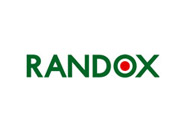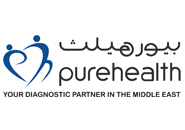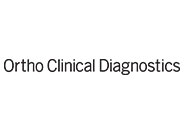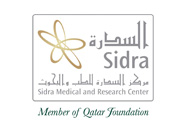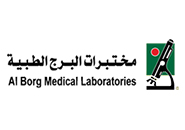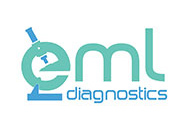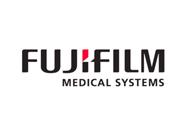Improving Patient Care With Standardised Guidelines
Article provided by College of American Pathologists (CAP), 16 January 2017
Breakthroughs in cutting-edge, experimental treatments using new pharmaceuticals or procedures often dominate healthcare news. While these developments are exciting and essential to advancing patient care, oftentimes the glamour of these stories outshines the importance of rigorous standards in the processes and procedures that provide the basis of quality patient care and safety.
Laboratories in the United Arab Emirates are ensuring the highest level of patient care with acclaimed programmes of accreditation like the International Organization for Standardization (ISO) 15189 standard, which is used for developing quality management systems and assessment of competence.
Complementary to ISO 15189, laboratories are also participating in the College of American Pathologists (CAP) Laboratory Accreditation Program, which works in tandem with ISO to establish and maintain processes and procedures before issues arise.
These accreditation standards help guarantee people access to the highest possible quality of health care, no matter their location. For instance, a patient whose test is performed in a CAP-accredited laboratory in Abu Dhabi can trust the test would be performed using the same quality principles at a CAP-accredited laboratory in New York City, Toronto, or Beijing.
“Laboratory accreditation is making an impact not only in Abu Dhabi and the UAE, but also across the region of the Middle East, where the CAP has been improving laboratory quality for more than three decades,” said Bharati Jhaveri, MD, FCAP, Chair of the CAP Council on Accreditation. “Our impact on patient care in the UAE, Saudi Arabia, and Qatar is evidence that CAP accreditation has played a large role in standardising excellence around the world.”
Aaron Han, MD, PhD, FCAP, the Director of Pathology and Interim Chief Medical Officer at American Hospital Dubai, said the reputation of the CAP laboratory improvement and accreditation programmes is well known.
“Undoubtedly people see this as the gold standard,” he said. “We are proud to be one of the first international CAP laboratories and to have others join the CAP family.”
A significant tool in assessing and improving laboratory medicine, CAP checklists are considered a first step for laboratories on the path to accreditation.
“The checklists were pivotal in this entire process. They educated us, guided us, and provided an unequivocal method of testing compliance,” said Laila Abdel-Wareth, MBBCH, FCAP, and Chief of Clinical Pathology at Cleveland Clinic Abu Dhabi.
CAP checklists cover specific processes and procedures essential to a laboratory’s consistency, efficiency, and organisation. These checklists dictate activity down to the minute detail, according to Denise Driscoll, CAP Senior Director of Accreditation and Regulatory Affairs.
“Whether it’s a certain centrifuge speed, a type of stain, or how to verify reagents, the CAP checklists get down to how you actually perform the test and get the right result,” said Driscoll. “There are specifics you cannot overlook. For example, you have to prepare your platelet-rich plasma like this, or you won’t get a good result.”
Dr. Abdel-Wareth and her colleague Imran Mirza, MBBS, MS, FCAP, the Chief of Pathology and Laboratory Medicine, said checklists were a helpful part of a larger, multi-step process to achieve accreditation.
After beginning with proficiency testing (PT) and CAP checklists, the Abu Dhabi laboratory then formed a steering committee of pathology and laboratory leadership to oversee the undertaking—ultimately undergoing a peer audit.
“We implemented action plans based on the audit report and continued the improvement journey,” said Dr. Abdel-Wareth, stressing that quality must be consistently assessed and monitored.
The CAP updates its checklists annually to keep up with advances in practices and technology. Developing fields like next-generation sequencing (NGS) especially need expert monitoring.
“The innovation in laboratory medicine is set to ‘fast-forward,’” said Driscoll. “Even publishing annually, we feel the pressure to stay current.”
In addition to modifying checklists, requiring consistent use of CAP PT is an indispensable risk mitigation strategy to ensure that CAP-accredited laboratories consistently fulfil accreditation requirements.
An error or deviation in one area of a laboratory calls into question the reliability of the tests done in another, according to Driscoll. The combination of CAP accreditation and PT are key components for laboratories looking for a comprehensive approach to high-quality laboratory medicine for patients.
“When a patient is being tested for cancer, one piece of data isn’t going to make the diagnosis,” said Driscoll. “It’s the big picture: You look at tissue, cell counts, protein markers, and have tests performed on many different benches.”
Laboratory directors and pathologists around the world agree that the ultimate goal of laboratory accreditation is better results for the patient.
“We have an integral role to play,” said Dr. Han. “We show our value every day by being involved and speaking up for the patient.”
Basel Altrabusi, MD, chief medical officer at National Reference Laboratory (NRL) in Abu Dhabi said the yearly review required by CAP accreditation keeps the laboratory and its staff at their best, ultimately for the good of the patient. NRL has pursued CAP accreditation for all six of its owned or managed laboratories in the UAE.
“Laboratory accreditation enhances the quality of healthcare for patients through the reduction of testing errors, which improves performance inside the laboratory and has a positive effect on the performance of other services in the healthcare system as a whole,” said Dr. Altrabusi.
CAP leaders in the US have also offered their support to international laboratories seeking accreditation and improving patient care.
“We admire the ambition among healthcare and laboratory leaders to develop the UAE as an enticing healthcare destination,” Dr. Jhaveri said. “We want to apply the same standards for quality worldwide, because all patients deserve the same level of care no matter where they live.”








